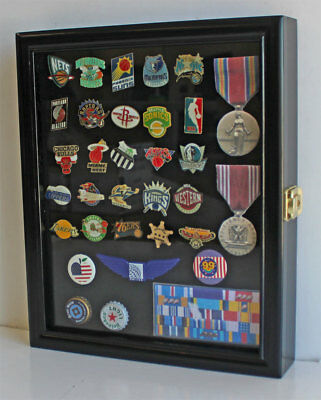-40%
WW1 Navy Expeditionary +
$ 42.23
- Description
- Size Guide
Description
PLEASE FOLLOW OUR E BAY STORESEE ALL PICS
WE COMBINE SHIPPING ( no shipping fee for the second item when you buy two or more like items )
SALE
SEE OUR STORE
PLEASE READ WHOLE ADD
NOTE : BOTH MEDALS ARE THICK , STRUCK 195s
Mexican Service Medal
From Wikipedia, the free encyclopedia
Jump to navigation
Jump to search
Mexican Service Medal
Army (
left
) & Navy (
right
) Mexican Service Medals
Type
campaign medal
Awarded for
service in Mexico between 1911 and 1919
Presented by
Department of War
and
Department of the Navy
Established
December 12, 1917
First awarded
April 12, 1911
Last awarded
June 16, 1919
ribbon and streamer
The
Mexican Service Medal
is an award of the
United States military
for service in Mexico from 1911 to 1919.
History
[
edit
]
The Mexican Service Medal awarded by the Army was established by General Orders of the
United States War Department
on December 12, 1917. The Navy's Mexican Service Medal was established by Navy Department General Orders Number 365 on February 11, 1918, as amended by Navy Department General Orders No. 464 of April 27, 1919. The Mexican Service Medal recognizes those service members who performed military service against Mexican forces between the dates of April 12, 1911 and June 16, 1919.
[1]
To be awarded the Mexican Service Medal, a service member was required to perform military duty during the time period of eligibility and in one of the following military engagements.
Veracruz
Expedition: April 21 to November 23, 1914
Punitive Expedition into Mexico
: March 14, 1916 to February 7, 1917
Buena Vista
,
Mexico
: December 1, 1917
The punitive expedition in the aftermath of the
Brite Ranch raid
on
San Bernardino Canyon
,
Mexico
: December 26, 1917
La Grulla, Texas
: January 8 – January 9, 1918
The aftermath of the
Neville Ranch raid
that resulted in a small action in the village of
Pilares
,
Chihuahua
: March 28, 1918
For actions in
Nogales, Arizona
during the
Battle of Nogales (1915)
or
Battle of Ambos Nogales
: November 1–26, 1915, or August 27, 1918
El Paso, Texas
and
Ciudad Juárez
,
Chihuahua
for the
Battle of Ciudad Juárez (1919)
: June 15 – June 16, 1919
The United States Navy issued the Mexican Service Medal to members of the Navy and
Marines
who participated in any of the above actions, as well as to service members who served aboard U.S. naval vessels patrolling Mexican waters between April 21 and November 26, 1914, or between March 14, 1916, and February 7, 1917
.
The Mexican Service Medal was also awarded to any service member who was wounded or killed while participating in action any against hostile Mexican forces between April 12, 1911 and February 7, 1917.
Although a single decoration, both the Army and Navy issued two different versions of the Mexican Service Medal. The Army Mexican Service Medal displayed an engraving of a
yucca plant
, while the Navy version depicts the
San Juan de Ulúa
fortress in
Veracruz
harbor. Both medals displayed the annotation "1911 - 1917" on the bottom of the medal.
The Mexican Service Medal was a one-time decoration and there were no
service stars
authorized for those who had participated in multiple engagements. For those Army members who had been cited for gallantry in combat, the
Citation Star
was authorized as a device to the Mexican Service Medal. There were no devices authorized for the Navy's version of the decoration.
A similar decoration, known as the
Mexican Border Service Medal
also existed for those who had performed support duty to Mexican combat expeditions from within the United States.
Navy Expeditionary Medal
From Wikipedia, the free encyclopedia
Jump to navigation
Jump to search
Navy Expeditionary Medal
Type
Medal
Awarded for
Landed on foreign territory and engaged in operations against armed opposition, or operated under circumstances which, after full consideration, shall be deemed to merit special recognition and for which service no campaign medal has been awarded.
Presented by
the
Department of the Navy
[1]
Eligibility
US Navy officers and enlisted
Clasps
Wake Island
Status
Currently Awarded
Established
August 5, 1936
First awarded
12 Feb 1874 (Retroactive) (
Honolulu, Hawaiian Islands
)
Last awarded
15 Dec 2002
[2]
Service ribbon
Precedence
Next (higher)
U.S. Navy -
Fleet Marine Force Ribbon
U.S. Marine Corps -
Selected Marine Corps Reserve Medal
Equivalent
U.S. Marine Corps -
Marine Corps Expeditionary Medal
Next (lower)
China Service Medal
Related
Armed Forces Expeditionary Medal
The
Navy Expeditionary Medal
is a military award of the
United States Navy
which was established in August 1936.
Award criteria
[
edit
]
The General Orders of the Department of the Navy which established the medal states, "The medal will be awarded, to the officers and enlisted men of the Navy who shall have actually landed on foreign territory and engaged in operations against armed opposition, or operated under circumstances which, after full consideration, shall be deemed to merit special recognition and for which service no campaign medal has been awarded. The Navy Expeditionary Medal is retroactively authorized to February 12, 1874."
Design
[
edit
]
The medal was designed by
A. A. Weinman
and features a sailor beaching a craft carrying Marines, an officer, and a US flag with the word "Expeditions" above. On the reverse of both the Marine Corps Expeditionary Medal and Navy Expeditionary Medal, in the center of the bronze medallion an eagle is shown alight upon an anchor; the eagle is facing to the left and the flukes of the anchor are to the right. The eagle is grasping sprigs of laurel, which extend beyond the anchor in both directions. Above the eagle are the words UNITED STATES MARINE CORPS or UNITED STATES NAVY presented as an arch. Above the laurel are the words FOR SERVICE presented horizontally. The eagle is the American bald eagle and represents the United States, the anchor alludes to Marine Corps or Navy service, and the laurel is symbolic of victory and achievement.
Marine Corps eligibility
[
edit
]
The medal is one of the few Navy awards which is not concurrently bestowed to the
United States Marine Corps
, as Marine Corps personnel are eligible for the
Marine Corps Expeditionary Medal
as an equivalent award. In addition, since 1961, some Navy commands have permitted service members to choose between the Navy Expeditionary Medal and the
Armed Forces Expeditionary Medal
for participation in certain operations. Both awards may not be bestowed simultaneously for the same action.
[3]
[4]
Additional awards
[
edit
]
Additional awards of the Navy Expeditionary Medal are denoted by
service stars
.
Wake Island Device
[
edit
]
The
Wake Island Device
is authorized for those service members who were awarded the Navy Expeditionary Medal through the defense of
Wake Island
.
[5]
As the vast majority of the defenders of Wake Island were U.S. Marines, the Navy Expeditionary Medal with the Wake Island device is one of the rarest awards in the U.S. military history, with only 68 eligible recipients.
Classified operations
[
edit
]
Under the “deemed to merit special recognition and for which service no campaign medal has been awarded“ clause, both the Marine Corps Expeditionary Medal (MCEM) and Navy Expeditionary Medal (NEM) have been awarded for classified operations with proper adjudication by the Secretary of the Navy Special Awards Board. The MCEM and NEM "can be authorized and awarded to individuals or units who have participated in classified operations not necessarily in connection with larger operations in which the public is aware.” The SECNAV INSTRUCTION 1650.1H - NAVY AND MARINE CORPS AWARDS MANUAL details the process via the Special Awards Board for issuing classified awards. Anecdotal reports from former service members cite a wide variety of classified operations for which the MCEM and NEM have reportedly been awarded, ranging from Marine Corps units clandestinely deployed in Africa, to helicopter gun-crews or force protection units assisting SEAL-DEVGRU or Delta Force teams worldwide, and even classified submarine operations during the Cold War. In cases where the Marine Corps Expeditionary Medal or Navy Expeditionary Medal has been awarded for classified operations, the name of the operation is omitted from public documentation including from the individual service member’s DD214 personnel record with only the name of the award and issue date provided.
Stolen Valor
[
edit
]
Both the Marine Corps Expeditionary Medal (MCEM) and Navy Expeditionary Medal (NEM) have been fraudulently worn by military service members convicted under the UCMJ and civilians fraudulently claiming to have been awarded the MCEM or NEM along with other medals such as the Purple Heart (see Stolen Valor Act for applicable criminal legislation). It has been widely reported that
L. Ron Hubbard
, founder of the
Church of Scientology
, fraudulently claimed being awarded the Marine Corps Expeditionary Medal.
[
citation needed
]
The issuance of military awards is available via a public records search and from lists of authorized recipients available online. In recent years, a number of television news crews have confronted people fraudulently wearing military awards and “Stolen Valor” websites publicly shame those who fraudulently wear or claim military awards and will notify federal law enforcement when they believe the activity rises to the level of a crime such as fraud for profit-or-gain, falsely receiving veterans services, falsifying a federal document such as the DD214, or violation of the
Stolen Valor Act
.




















